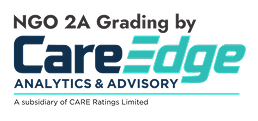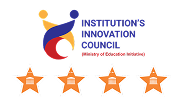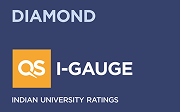

You may interested in
Past Events
-
Sustainable Tourism Model...
Ganpat University proudly announces the next session of the Internati...
-
Application of Artificial...
International Expert Lecture Series | GUNI–CMSR Ganpat Universi...
-
One Day Workshop on "How...
One Day Workshop on "How to Make CV Attractive?"
Data Analysis using SPSS: Scratch to Adance for Industry focused BBA

Description
Data Analysis using SPSS: Scratch to Advance for Industry focused BBA
Ganpat University Centre for Management Studies and Research organized Workshop on Data analysis using SPSS and Research Report Writing for MBA students from 24th February to 25th February, 2023. 40 students from BBA (G) had been participated in this skill development research workshop. The expert of the workshop was Anju Dwivedi, Assistant Professor, EDII, GANDHINAGAR. For a workshop titled "Data Analysis using SPSS: Scratch to Advance for Industry-Focused BBA Students," the objectives and outcomes should be designed to cover a broad range of skills, from basic to advanced levels, with a strong emphasis on practical applications relevant to industry contexts. Here’s a structured approach:
Objectives
- Introduction to SPSS Basics:
- Objective: Provide participants with foundational knowledge of SPSS, including its interface and basic functionalities.
- Activities: Overview of SPSS features, data entry, and basic operations.
- Basic Data Analysis Techniques:
- Objective: Equip students with fundamental skills for performing basic data analysis using SPSS.
- Activities: Hands-on sessions on descriptive statistics, frequency distributions, and basic data visualizations.
- Intermediate Data Analysis Skills:
- Objective: Teach participants how to conduct more complex data analyses, including hypothesis testing and correlation analysis.
- Activities: Exercises on t-tests, chi-square tests, and Pearson’s correlation coefficient.
- Advanced Analytical Techniques:
- Objective: Develop skills for performing advanced statistical analyses and modeling using SPSS.
- Activities: Sessions on regression analysis, factor analysis, and cluster analysis.
- Industry-Relevant Applications:
- Objective: Apply SPSS skills to real-world industry scenarios, focusing on practical, industry-specific data analysis problems.
- Activities: Case studies and projects that simulate industry data challenges and decision-making processes.
- Data Interpretation and Reporting:
- Objective: Teach students how to interpret SPSS outputs and effectively communicate findings through reports.
- Activities: Workshops on writing up statistical results, creating reports, and presenting data insights.
- Ethical Considerations in Data Analysis:
- Objective: Highlight ethical issues and best practices in data analysis and reporting.
- Activities: Discussions on data privacy, accuracy, and ethical reporting practices.
Outcomes
- Proficiency in SPSS Basics:
- Outcome: Participants will be comfortable navigating SPSS, entering data, and performing basic statistical operations.
- Competence in Basic Data Analysis:
- Outcome: Students will be able to conduct and interpret basic data analyses, including generating descriptive statistics and visualizations.
- Ability to Perform Intermediate Analysis:
- Outcome: Participants will be proficient in performing hypothesis testing and correlation analyses, understanding their implications for data interpretation.
- Skills in Advanced Data Analysis:
- Outcome: Students will be capable of executing advanced analyses such as regression, factor analysis, and cluster analysis, and interpreting complex results.
- Application of SPSS to Industry Scenarios:
- Outcome: Participants will be able to apply SPSS techniques to solve industry-specific data problems, demonstrating practical skills relevant to their field.
- Effective Data Interpretation and Reporting:
- Outcome: Students will be able to produce clear and insightful reports based on SPSS outputs, effectively communicating their findings to stakeholders.
- Awareness of Ethical Practices:
- Outcome: Participants will be knowledgeable about ethical considerations in data analysis and reporting, applying best practices in their work.
Structure of the Workshop
- Introduction to SPSS:
- Session 1: Overview of SPSS interface and basic functionalities
- Session 2: Data entry, management, and basic operations
- Basic Data Analysis:
- Session 3: Descriptive statistics and frequency distributions
- Session 4: Data visualization techniques (charts, graphs)
- Intermediate Analysis Techniques:
- Session 5: Hypothesis testing (t-tests, chi-square tests)
- Session 6: Correlation analysis (Pearson, Spearman)
- Advanced Analytical Techniques:
- Session 7: Regression analysis (simple and multiple)
- Session 8: Factor analysis and cluster analysis
This structure ensures that BBA students develop a comprehensive skill set in SPSS, ranging from basic to advanced analysis techniques, with a focus on practical, industry-relevant applications and ethical considerations.






